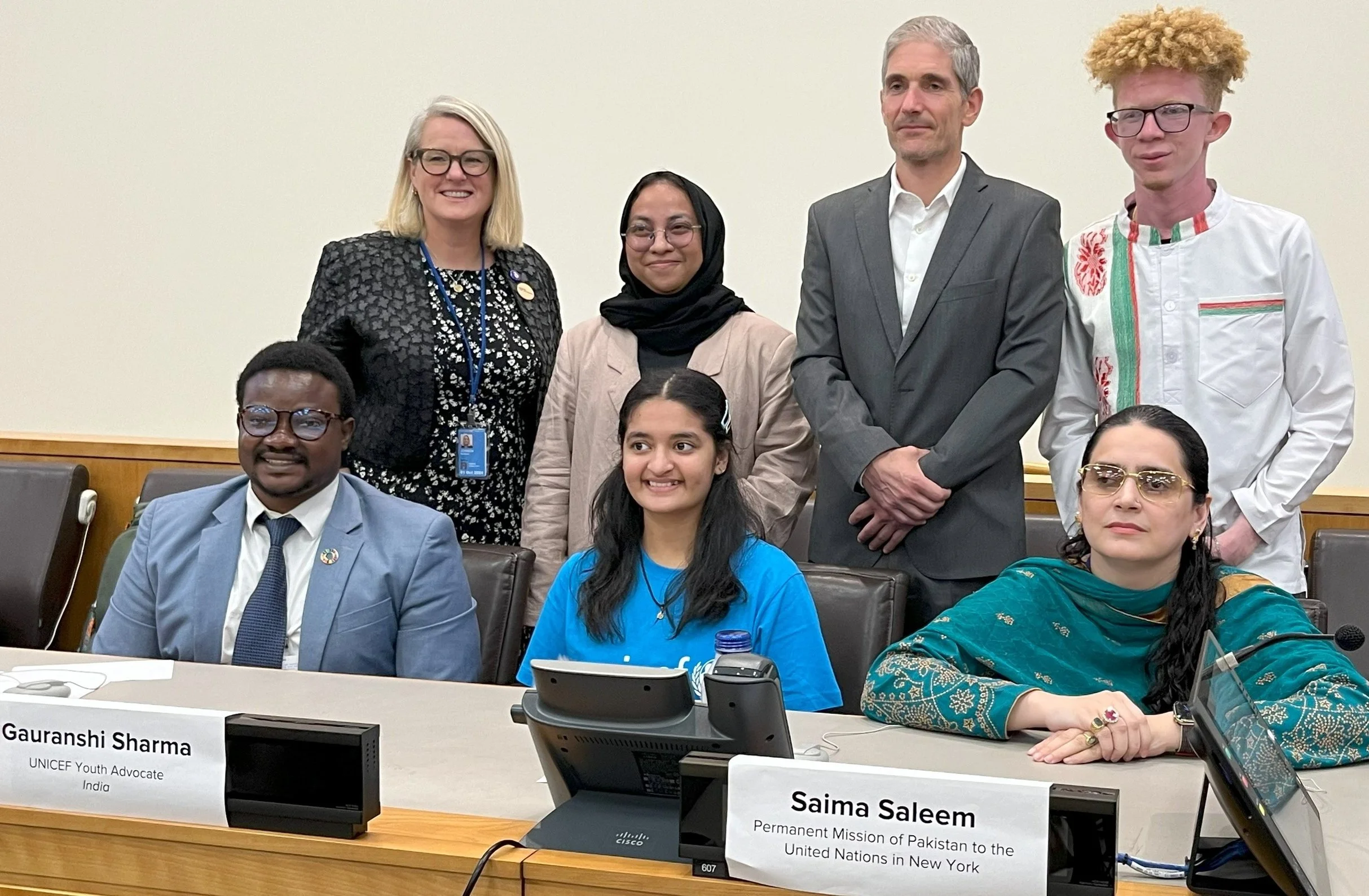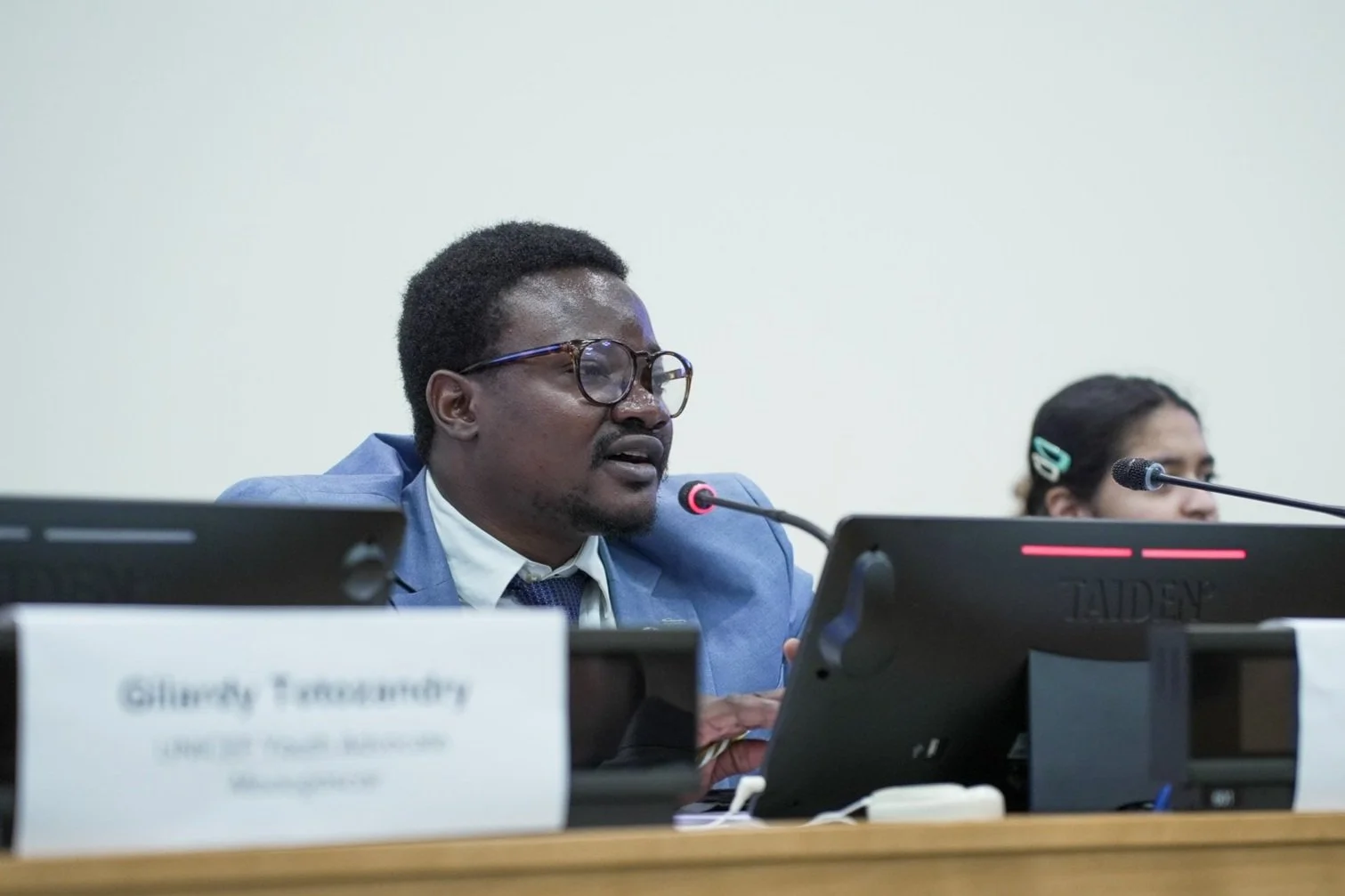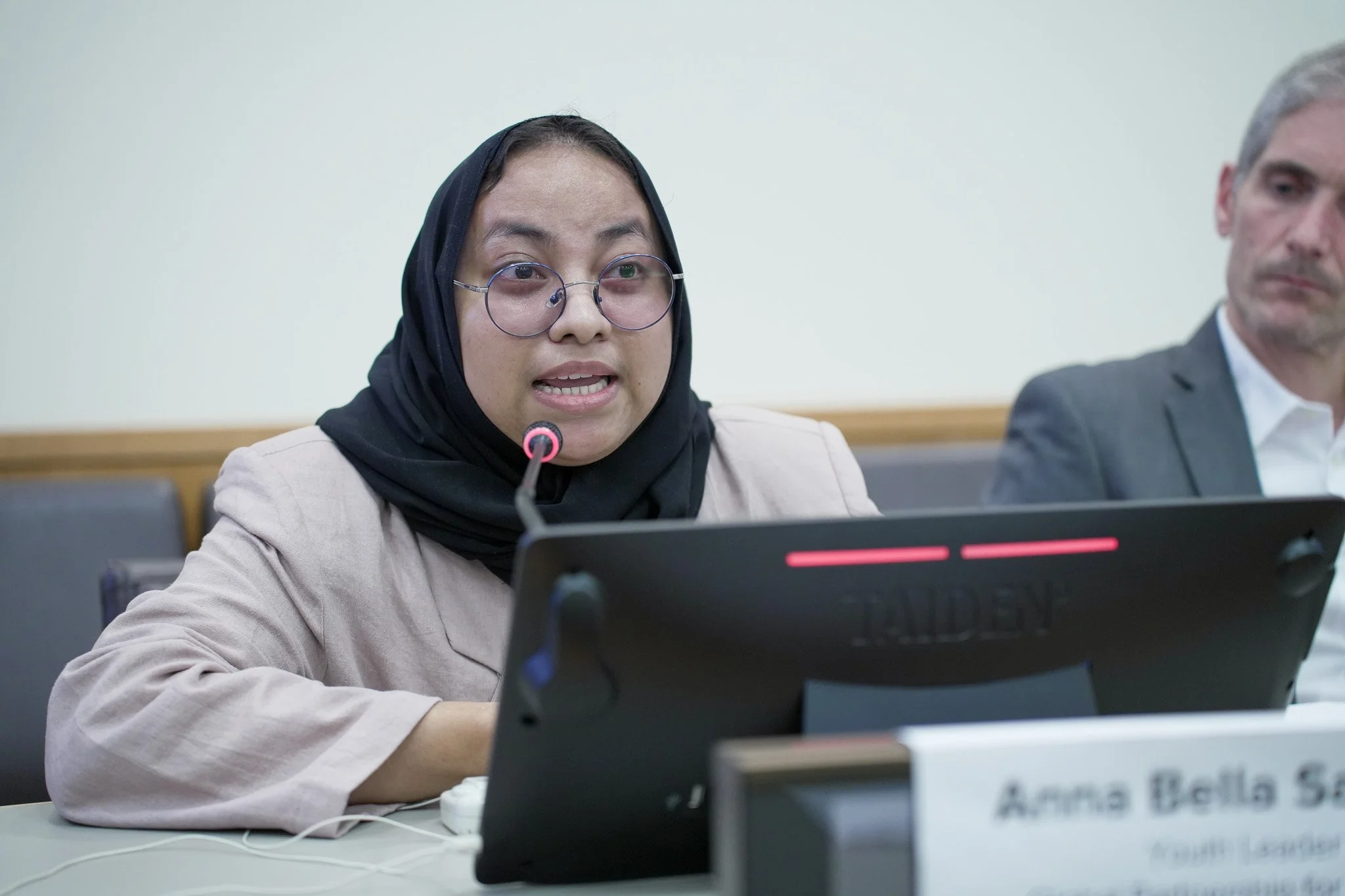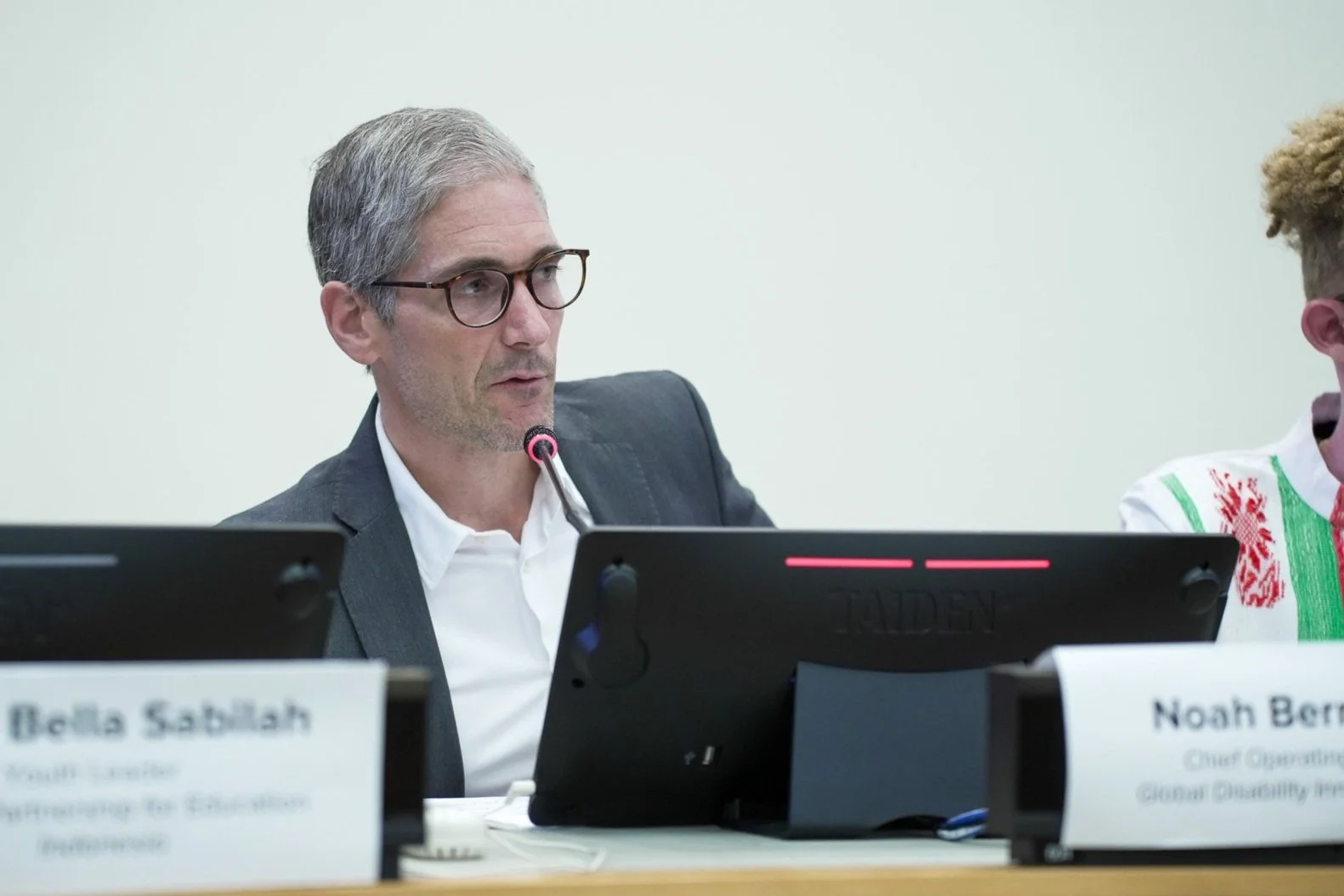In an event aimed at shaping the future for children and youth with disabilities, global leaders and advocates gathered to discuss the power of multi-stakeholder partnerships in transforming education and employment opportunities through inclusive education and access to assistive technology.
The event held during the ‘Action Days’, Summit of the Future, supported by the governments of the United States, Rwanda, ATscale, the Global Partnership for Assistive Technology, the Global Partnership for Education, UNOPS, UNICEF, the Global Disability Innovation Hub and the International Disability Alliance, served as a critical platform for sharing experiences and formulating actionable strategies.
Saima Saleem, Permanent Mission of Pakistan to the United Nations, New York, and the panel moderator, underscored the importance of inclusive education: “A key part of achieving inclusive education is ensuring that those who need assistive technology such as glasses, hearing aids, digital devices, and wheelchairs have access to them. It's not just about providing these tools but also about helping students transition smoothly into the job market.”
Several young people with disabilities shared their personal challenges in accessing education and assistive technology. Priscilla Garcias, a representative for the Women's Federation for World Peace, highlighted the transformative impact of assistive technology on her life. “I am totally blind. I rely on assistive technology in order to do everything. It is a form of independence. Assistive technology can unite you to the world. It opens the door to many opportunities. When it is accessible, it is inclusive and creates unity. If it's not accessible, it creates division and exclusion,” she explained.
The summit illuminated the pressing need for inclusive policies, teacher training, and the affordability of assistive technology. Noah Bernstein, Chief Operating Officer, Global Disability Innovation Hub (GDI Hub) remarked, “By 2050, 3.5 billion people could benefit from assistive technology, but 95% may not have access. From what I have heard today, I think we can change that.”
Panelists called on governments to prioritize investments in assistive technology, ensuring its accessibility and affordability, and to involve persons with disabilities in policymaking. Saima Saleem announced a groundbreaking move by the general assembly, “The UN General Assembly will adopt the first-ever resolution ensuring equal access to assistive technology. The aim of the resolution is to promote access to assistive technology for millions of people, leaving no one behind.”
Watch the full recording of the UN Summit of the Future side event
Read the photo summary with some key quotes from each speaker below:
Opening Remarks by Jorge Moreira da Silva, Under-Secretary General and UNOPS Executive Director .
“Education and employment opportunities for children and young people with disabilities is at the heart of that promise. It's crucial to achieving the Sustainable Development Goals.
It's also a matter of economic prudence, giving everyone an opportunity to realize their full potential makes economic sense. If children have to miss out on education, they are not only deprived of the chance to learn but also a chance to build a better future for themselves and their families”.
Keynote Address by H.E. Ernest Rwamucyo, Permanent Representative of Rwanda to the United Nations in New York
“ In low-income countries, only 10% of people who need assistive technology have access to it. For children, this means being left behind academically and socially.
In Rwanda, we have seen the first-hand impact of such collaboration. In December 2023, the Rwandan Biomedical Center launched the Ear and Hearing Care Winsiga Ndumva programme. Winsiga Ndumva means "don't leave me behind, I'm moving the same pace as you." This initiative focuses on delivering primary health care services to children and adolescents across Rwanda”.
Panel discussion moderated by: Saima Saleem, Permanent Mission of Pakistan to the United Nations, New York
“The Summit of the Future is focused on renewing our global commitment to achieving the SDGs. But we know that we won't reach those goals unless we prioritize inclusion, making sure no one is left behind, especially persons with disabilities.
In this regard, assistive technology can play a pivotal role in transforming lives of persons with disabilities. In this event, we will hear from young people because they are playing a huge rule in shaping the future.
Saima informed those assembled that the UN General Assembly will soon adopt the first ever resolution ensuring equal access to assistive technology, presented by her country, Pakistan. The aim of the resolution is to promote access to assistive technology for millions of people leaving no one behind.
Panelists:
Gauranshi Sharma, UNICEF Youth Advocate, India
“ Growing up, it has not been easy. There were many barriers. At home my parents are also deaf. We communicate through sign language. But we don't have sign language in school.
But there should be equality with hearing and deaf students in training centers and in schools. We hope to cross all barriers and get equal access.”
Tianarivelo Gilardy Totozandry, UNICEF Youth Advocate, Madagascar
“I got my first pair of glasses at age six. I only see 10% without glasses. I don't see more. Honestly I think I look really bad without them! When it comes to employment, that's another challenge. Some of us struggle to find a job because we are judged outright based on the physical condition.
Poor vision, for example, or people with albinism. It's often seen as a sign that disabilities are a problem. It prevents us from working”.
Sylvain Obedi, Founder and Executive Director, Enable the Disable Action, Democratic Republic of Congo
“For me, access to assistive technology when I was at school… wasn't really easy because I'm coming from a low-income country.
The assistive technology provided must respect the diverse needs of persons with disabilities…it should be accessible and affordable for everyone who needs it in their life.
The government should include a provision of assistive technology in their social protection policies”.
Anna Bella Sabilah, Youth Leader, Global Partnership for Education (GPE), Indonesia
“There are over 400 institutions with children with disabilities. But few are equipped with special needs teachers. Even though there are inclusive school programs, they don't cover all. After consulting with the disability community I highlighted the 3 most important elements for systemic change we need. 1. Inclusive budgeting models, 2. Participation, 3. Mult-isector collaboration.”
Ceridwen Johnson, Advocacy and Communications Advisor, ATscale, Global Partnership for Assistive Technology
“The partnership approach is essential because, alone, we will never make move the needle from the where we are now - with only 10% of people in low income countries able to access the assistive technology they need - to where we want to go - full inclusion, where everyone, no matter where they live can access the assistive technology that they need to participate, in education, employment and social activities.
For children, enhanced mobility provided by wheelchairs and prostheses can help them to attend school in the first place. Eyeglasses help children perform better in class and significantly improve educational outcomes.
It isn’t only about the product - the assistive device -, it is also about having the right policies in place, systems set up, and service delivery at country level to increase access to quality, and affordable assistive technology. And for this all sectors need to be involved - governments, manufacturers, the private sector, NGOs, and the users of assistive technology themselves.
Closing Remarks by Noah Bernstein, Chief Operating Officer, Global Disability Innovation Hub (GDI Hub)
“The proverb is: It takes a village to raise a child.
And soon it will take everyone in these rooms to push for children with disabilities. We are governments, civil society organizations, young people and we need more young people. We are from both the Global North and the Global South. We will work with persons with disabilities no longer being forgotten.
Over the past 10 years we have had tens of millions of dollars invested in technology. Research, innovation, direct investment, market shaping activities. These impacted 100 million people globally. But there's so much more to do as I'm sure you have heard. By 2050 3.5 billion people could benefit from assistive technology but 95% won't have access. From what I have heard today, I think we can change that.”
The session ended with a call to action from the participants to the global leaders for timely access to appropriate, affordable, quality technology. “This can make the difference between enabling or denying a child’s education. There can not be full inclusion while children and young people are unable to participate and learn, including due to limited access to assistive technology, said Ceridwen Johnson.
“Inclusion is key to realize the promise of the Sustainable Development Goals. So, please commit to assistive technology, allocate resources to facilitate access to appropriate and accessible assistive technology integrated with national plans. An investment in assistive technology is an investment in our future”.










